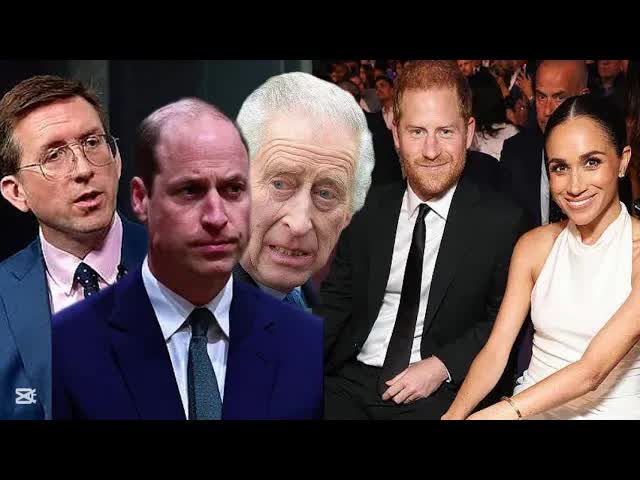In a thought-provoking column, veteran British journalist Trevor McDonald has stirred the pot regarding the Duke and Duchess of Sussex.
His piece dives deep into the implications of their departure from royal duties, suggesting that their absence is a significant loss for both Britain and the Commonwealth.
McDonald argues that Harry and Meghan’s flourishing lives in California highlight a stark contrast to the current state of the royal family, which is struggling to capture public interest.
McDonald reflects on his initial belief that Harry and Meghan would return to the royal fold, a notion he now dismisses.
He asserts that they are unlikely to come back as working royals, emphasizing the positive impact they could have had on the monarchy during a time when other members seem less engaging.
He paints a vivid picture of a royal family that appears dull and uninspired, often mimicking the Sussexes rather than carving out their own identities.
As Harry and Meghan continue to thrive in their new life, McDonald expresses no regrets about their departure.
He believes that the UK was never a suitable environment for them, given the relentless scrutiny and challenges they faced.
Their success in California, according to him, is a testament to their resilience and capability, contrasting sharply with the stagnation observed within the royal family.
This week also saw comments from James Hewitt, Princess Diana‘s former lover, who suggested that Diana would have wanted her sons to reconcile.
However, this sentiment seems to have set off a reaction in the media, particularly with Richard Eden of the Daily Mail.
In his latest column, Eden insinuates that there is a conspiracy within certain establishment circles aimed at coaxing Harry and Meghan back into royal life.
Eden’s theory hinges on the idea that the royal family has long desired Harry’s return, but not on his terms.
They seemingly wish for him to return as a diminished figure, devoid of the success and independence he has cultivated in the United States.
This perspective reveals an underlying resentment towards the Sussexes, who have managed to carve out a successful narrative away from the monarchy.
Despite attempts by the UK media to undermine their success, the Sussexes have only grown more appealing to brands and audiences alike.
Recent partnerships, including Meghan’s collaboration with Netflix, stand as clear indicators of their enduring popularity.
The strategies employed by the royal family and the press to diminish their influence appear to have backfired spectacularly.
Eden’s commentary suggests a shift in narrative, claiming that it is Harry who desires to return to the royal family.
This claim directly contradicts Harry’s previous statements, where he has firmly rejected the idea of returning to royal duties.
During interviews, he has consistently emphasized his love for his family while maintaining that he will not resume a role within the institution.
The narrative surrounding Harry and Meghan’s departure has been complicated by the jealousy exhibited by other royal family members.
Their popularity overshadowed that of William and Kate, leading to a smear campaign that began shortly after their tour in Australia—a trip that garnered immense public adoration for the Sussexes.
The royal family’s reaction was fueled by a mix of jealousy and racism, particularly regarding Meghan’s biracial heritage.
As tensions simmer, it’s evident that many in the UK media feel threatened by the prospect of Harry and Meghan never returning.
Their absence not only affects the royal family but also deprives the media of the engagement and stories that the couple once provided.
This has led to a palpable bitterness among royalists, some of whom have even implored Harry to return, promising forgiveness for perceived transgressions.
However, the reality remains that Harry has no obligation to return to an environment that treated him and his wife poorly.
He deserves respect and happiness, and the royal family’s past actions do not warrant a welcome mat.
The narrative pushed by figures like Eden seems less about reconciliation and more about a desire to reclaim the spotlight that Harry and Meghan once occupied.
Ultimately, while the establishment may yearn for a reunion, it’s clear that Harry and Meghan have moved on to a life that suits them far better than their previous roles ever could.
The royal family’s reluctance to embrace change and adapt to the modern world may very well seal their fate, leaving them in the shadows of the Sussexes’ undeniable success.
As the saga unfolds, one thing is certain: the Sussexes are not looking back.

